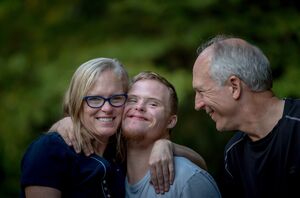Marriage and Family
Mini budget: Govt must go further to help families weather cost-of-living storm
Press release: CARE urges series of changes to help cash-strapped Brits
CARE has urged the UK Government to do more to help cash-strapped families as Ministers are poised to outline a fiscal response to the cost-of-living crisis.
Today, the chancellor has outlined various tax cuts aimed at helping people across the UK who are struggling with rising living costs.
CARE is calling for three “immediate” measures to help families weather the cost-of-living storm:
- An increased in Married Persons Allowance
- A new threshold for the High Income Child Benefit Charge
- A reintroduction of Child Tax Allowances
We are also urging more significant, structural reform of income tax rules to move Britain away from an “individualised” system and take account of household circumstances.

Speaking last night, Tim Cairns, Senior Policy Officer at CARE, said:
“Over many years CARE has campaigned for fundamental reform of the UK tax system in order to better help families. While this reform is much needed, we recognise that this type of structural reform will take many years to implement. However, there are some measures that the Government could take immediately to help families, particularly as they face a cost-of-living crisis over the winter months.
“First, the Government should increase the Married Persons Allowance. When this measure was introduced in 2014 it did not go as far as promised in the Conservative Party manifesto. The allowance only allows for a 10% transfer of a spouses unused Personal Tax Allowance to their working partner. This threshold should be abolished and the full amount of the allowance should be made transferable. Consideration should also be given to increasing the allowance to all households with children. While it is important that marriage is recognised within the tax system, it is also important that society ensures our children are given the best start in life.
“Given the importance of child welfare, particular in the current financial crisis, a second measure that should be implemented is reform of the ‘High Income Child Benefit Charge’. When the threshold for Child Benefit was first introduced in 2013, only 13% of households with children were affected. By this year that figure has risen to in excess of one household in every five. That means an almost 50% increase in the numbers of households affected by the charge since it was introduced nine years ago. For the highest 20% of households, combined earnings are now around £110,000 per annum: clearly the threshold of £50,000, which has remained unchanged since 2013, is now too low. To help families immediately the cap should be raised to at least £100,000 and be indexed linked to inflation going forward.
Mr Cairns added:
“A third measure the Government should consider is a reintroduction of Child Tax Allowances. An allowance could be given for each child: the amount of the allowance could be varied with the age of the child and an increased allowance could be given if the child has a disability or other need. Consideration also needs to be given to repealing the restriction of child credits to two children in the case of those born after April 2017. Families in Scotland benefit from the Scottish Child Payment, the UK Government should explore ways to extend this benefit to the rest of the UK.
“These are some simple, immediate measures the Government could introduce this week to help families. However, tinkering around the edges of tax reform is not enough. What is required is a cultural change so that every household, not individuals, is considered one economic unit for the purposes of tax. Ending the individualised tax system in the UK will help families; this sort of radical thinking is needed as the country prepares for a winter of rising costs.”
ENDS
Christian Action Research and Education (CARE) provides analysis of social policy from a Christian perspective.
For more information or to request an interview, contact press@care.org.uk
Share
